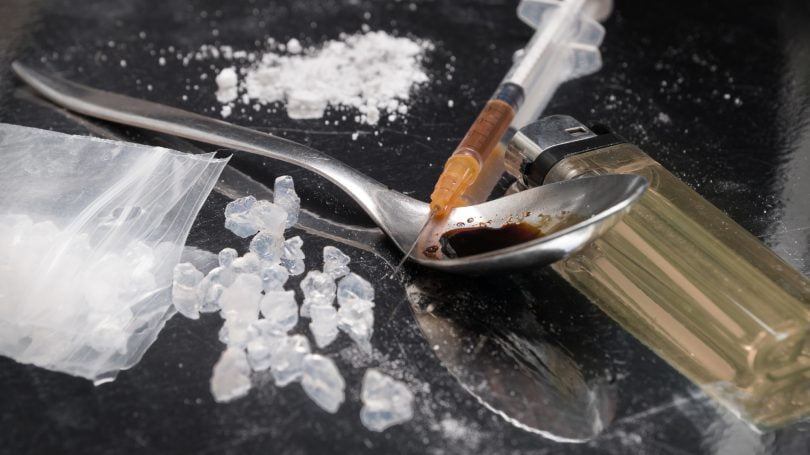The mind is powerful and influences how a person views not only themselves and others but the world around them. All of this changes when you or someone you care about discovers drugs.
Although there’s a variety of different illegal drugs, meth is among the most common of them. Because it’s easy to make and costs relatively little, meth is easy to get ahold of.
For those that never had a drug problem before, meth is easy to get hooked on because it’s highly addictive. It’s normal to feel scared and uncertain if there’s any way out for a meth addict.
Learn more and understand the pull meth has and how to help yourself or someone you love overcome this problem.
What Crystal Meth Is
Crystal meth goes by many names: glass, crank, and ice, but it most commonly gets called meth. This drug is created in illegal meth labs across the country and has hooked 11 million Americans with its deadly touch.
Similar to cocaine, it helps the individual feel relaxed. It makes them feel like they have plenty of energy to get through the day and accomplish a lot.
Meth is addictive and it doesn’t take an extended drug habit for a person to feel as though they need to keep using or increase the amount of meth they take.
Unlike many other drugs on the market, meth is cheaper than heroin or cocaine. For people who would normally balk at spending a lot on a drug habit, meth breaks down this barrier.
Most individuals who use smoke meth, but it can get injected and even snorted depending on the user’s preference. Meth seems easy and accessible at first but has a death grip on anyone who begins using.
If this is you or your loved ones, it’s important to note the warning signs before it’s too late.
Meth Addict: Physical Symptoms
If someone you love uses meth, you won’t always know right away. If they continue with persistent use, you’ll soon notice tell-tale signs soon enough, alerting you to what’s going on.
Because meth is addictive and gives people a rush, they’ll want to continue use often. That means you’ll notice outward signs such as:
- Weight loss
- Scratching
- Blisters around the face
- Tooth loss and decay
These signs aren’t present in every individual all the time. Therefore, it’s important to take note, and see if the person you care about is displaying any of these symptoms.
If they do, it’s not too late to get them help. The path to recovery isn’t easy, but it can give them back years of life that meth would take away if they kept on using.
Behaviors of a Drug Addict
Many people addicted to meth start developing tics and other behaviors associated with their habit. part of this is how the drugs make them feel, which is highly euphoric and happy, along with a combination of withdrawal symptoms.
As a result, someone who’s addicted to meth can:
- Become violent when going through withdrawing
- Stop talking to friends and family
- No longer engage in old hobbies or interests
- Be extremely talkative
- Lose their appetite
These behaviors are a combination of feeling fueled by the drugs or needing more drugs in order to keep functioning.
If you’re trying to determine if your loved one is using and you think they have a problem, consider talking to them one-on-one. You’ll have an opportunity to observe their reactions and get a better understanding of how they’re feeling.
If you determine they have a problem, it’s important to talk about rehab with them and even scheduling an intervention. Although this seems like a drastic step, it’s one that can save their lives and help them get back on the path to sobriety.
Desperation to Use Meth
Because meth promotes feelings of relaxation and gives a long lasting rush that lasts for over 10 hours, many people feel pulled toward using it again. What starts out as a one-time habit escalates into something that becomes long-term, leading to the most damage among new drug users.
Meth does not discriminate and attracts a variety of people including teenagers, men, veterans, and high-functioning professionals. Because the drug is cheap and readily available, even people who don’t have unlimited funds find themselves addicted, and in a hopeless situation.
Long-term effects stay with the individual even after they’ve stopped using drugs. It’s not uncommon to have hallucinations and memory loss, along with violent behavior.
Although the road to leaving meth seems difficult and long, it’s possible to combat the issue and go back to a normal way of living. If you believe your loved one is suffering or you find yourself developing an addiction to meth, get help as soon as possible.
Using meth makes it easy to go down a slippery slope of feeling like quitting is possible anytime. The truth is, the longer these addictions remain untreated, the more difficult it is to get back to a normal life.
Recovering from Meth Use
If you or your friends and family face problems related to meth use, reach out and get help today. Being a meth addict doesn’t have to define who someone is, and there’s always hope to change life for the better with proper treatment.
If you’re unsure where to get started, don’t despair. We’re here to help and make the journey easier for you.
Check out private drug rehab facilities near you. If you’re on state or military insurance, you’ll find other options.
Getting help for you or a loved one is possible if you know where to look. Get started on the road to recovery today and contact us at (877) 322-2450. We can help.
















